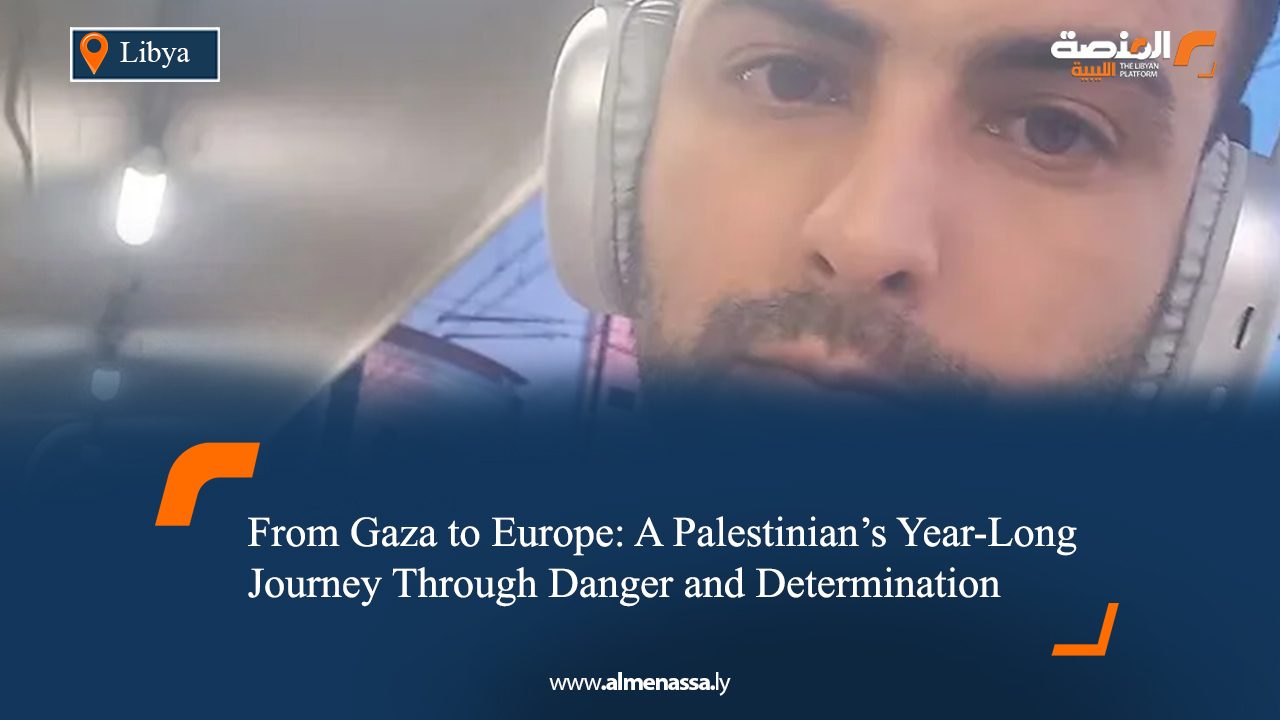Mohammad Abu Daqa, a 31-year-old Palestinian, spent over a year navigating a perilous route from war-torn Gaza to Europe—passing through Egypt, China, Southeast Asia, and Libya—before finally reaching Italy. His journey, marked by ten failed attempts and thousands of dollars in expenses, was documented through videos, photos, and voice recordings he shared with Reuters, which interviewed him, his two travel companions, and relatives back in Gaza.
🔹 Escape from Gaza: A War Survivor’s First Steps
In April 2024, Abu Daqa left Gaza through the Rafah border crossing into Egypt, fleeing the devastation caused by Israel’s military campaign, which claimed the lives of over 64,000 Palestinians. Once in Egypt, he sought refuge in China, hoping to apply for asylum. But after unsuccessful attempts and correspondence with UNHCR representatives between August and September 2024, he returned to Egypt via Malaysia and Indonesia.
🔹 Libya: Ten Failed Crossings and a Risky Plan
Determined to reach Europe, Abu Daqa traveled to Libya, where he faced ten failed smuggling attempts. Eventually, he devised his own escape plan: purchasing a second-hand Yamaha jet ski for $5,000 through a Libyan online marketplace. He spent another $1,500 on gear, including a GPS device, satellite phone, life jackets, and a small supply-laden raft to tow behind the jet ski.
🔹 Crossing the Mediterranean: Twelve Hours of Survival
Accompanied by fellow Palestinians Diyaa (27) and Basem (23), Abu Daqa set off from Libya’s Al-Khums port, navigating the Mediterranean for nearly 12 hours. They were chased by a Tunisian patrol boat and used ChatGPT to calculate fuel needs. But their fuel ran out just 20 kilometers from Italy’s Lampedusa island. They managed to send a distress signal and were rescued on August 18 by a Romanian patrol vessel participating in the EU’s Frontex mission.
🔹 Arrival in Italy: A Unique Case of Migration
UNHCR spokesperson Filippo Ungaro described their arrival as “extraordinary,” confirming that Italian authorities registered their entry after the jet ski rescue. Abu Daqa later contacted Reuters from a migrant center in Lampedusa, where he learned that local media had reported on his unusual arrival.
Basem, reflecting on the ordeal, said: “It was a life-or-death adventure. We didn’t know what lay ahead, but we thank God for everything. We hope this marks a new beginning.”
🔹 Journey North: From Sicily to Brussels
After arriving in Lampedusa, the trio was transferred by ferry to mainland Sicily and then to Genoa. Before reaching their assigned destination, they fled the transport bus and hid in nearby woods. Abu Daqa then flew from Genoa to Brussels on August 23, showing Reuters his boarding pass for a budget flight to Charleroi.
🔹 Germany: Seeking Asylum and Family Reunion
From Brussels, Abu Daqa traveled by train to Cologne and then to Osnabrück in Lower Saxony, where a relative picked him up and drove him to the nearby town of Bramsche. He has since applied for asylum and is awaiting a court hearing. Without income or employment, he currently resides in a local asylum center. Germany’s Federal Office for Migration and Refugees declined to comment on his case, citing privacy regulations.
🔹 Family in Gaza: Loss, Hope, and the Meaning of Risk
Back in Khan Younis, southern Gaza, Abu Daqa’s family lives in a tent after their home was destroyed. His father, Intissar Khudair Abu Daqa, told Reuters: “He had a business, internet, everything was stable. He built a life. Israel destroyed it all—his house, his walls, everything.”
Abu Daqa hopes to secure residency in Germany and reunite with his wife and two children, aged 4 and 6. One of them suffers from a neurological condition requiring medical care. “I risked my life on that jet ski,” he said, “because without my family, life has no meaning.”


